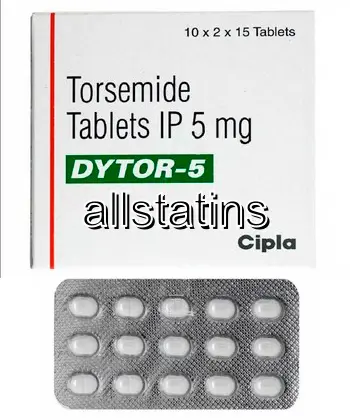| Package | Dosage | Price | Price per Dose | |
|---|---|---|---|---|
| Dosage: 10mg | ||||
| 360 pill | 10mg | $362.37 | $1.00 | |
| 180 pill | 10mg | $193.73 | $1.08 | |
| 120 pill | 10mg | $175.79 | $1.47 | |
| 90 pill | 10mg | $152.47 | $1.69 | |
| 60 pill | 10mg | $110.60 | $1.85 | |
| 30 pill | 10mg | $89.86 | $3.00 | |
| Dosage: 20mg | ||||
| 360 pill | 20mg | $529.21 | $1.47 | |
| 180 pill | 20mg | $299.58 | $1.67 | |
| 120 pill | 20mg | $224.23 | $1.87 | |
| 90 pill | 20mg | $184.76 | $2.05 | |
| 60 pill | 20mg | $147.09 | $2.46 | |
| 30 pill | 20mg | $107.62 | $3.59 | |

Torasemide Description
Overview of Torasemide
Torasemide is a potent loop diuretic medication used to treat fluid retention and swelling caused by various cardiovascular and renal conditions. It helps the body eliminate excess water and salt through increased urine production. This medication is often prescribed for conditions like heart failure, liver cirrhosis, and kidney disorders where fluid buildup poses a serious health risk. Its effectiveness in reducing edema and improving breathing makes it a valuable option for many patients suffering from fluid overload. When used properly, torasemide can significantly improve quality of life and assist in managing complex health conditions.
Mechanism of Action
Torasemide works by inhibiting the reabsorption of sodium, chloride, and potassium in the loop of Henle, a part of the kidney's nephron. This action leads to increased excretion of water, sodium, and other electrolytes. By promoting diuresis, it reduces the amount of fluid circulating in the body, which eases strain on the heart and other organs. The drug's longer duration of action compared to other loop diuretics like furosemide makes it a convenient choice for some patients. It generally starts working within an hour of ingestion, with effects lasting around 12 hours, depending on individual factors.
Potential Benefits
Patients taking torasemide often experience relief from symptoms associated with fluid retention, such as swelling of the legs, ankles, and abdomen. The medication can improve breathing difficulties caused by pulmonary congestion, which is common in severe heart failure. Its efficient diuretic effect can help lower blood pressure and reduce the workload on the heart. Many healthcare providers prefer torasemide for its once-daily dosing and sustained action, which can improve adherence to treatment plans. Additionally, some studies suggest that torasemide may have a more favorable side effect profile compared to other diuretics, making it suitable for long-term management in chronic conditions.
Possible Side Effects and Risks
Like all medications, torasemide may cause side effects. Common issues include dehydration, low blood pressure, electrolyte imbalances such as hypokalemia or hyponatremia, and increased urination. Patients might also experience dizziness, weakness, or muscle cramps, especially if fluid and electrolyte levels are not carefully monitored. Rarely, allergic reactions or kidney function impairments can occur. It is crucial to follow medical advice regarding dosage and regular monitoring to avoid complications. Patients with certain health conditions, such as severe liver disease or electrolyte disturbances, should consult their doctors before starting torasemide.
Usage and Precautions
Torasemide should be taken exactly as prescribed by a healthcare professional. The typical dose varies depending on the severity of the condition and patient response. It is usually administered once daily, with adjustments made based on clinical response and laboratory results. Regular blood tests are necessary to monitor electrolyte levels and kidney function. Patients should be cautious to prevent dehydration, especially in hot weather or during vigorous exercise. It is also important to inform healthcare providers about all medications being taken, as torasemide can interact with other drugs, such as antihypertensives, lithium, or aminoglycoside antibiotics.
Conclusion
Torasemide is a highly effective diuretic that plays a key role in managing conditions involving fluid overload. Its extended duration of action and potent diuretic effects make it a preferred choice for some patients. Nonetheless, careful monitoring is essential to minimize risks and side effects. When used appropriately under medical supervision, torasemide can significantly assist in controlling symptoms of heart failure, cirrhosis, and kidney diseases. Patients should adhere strictly to dosing instructions and attend regular check-ups to ensure optimal treatment outcomes.